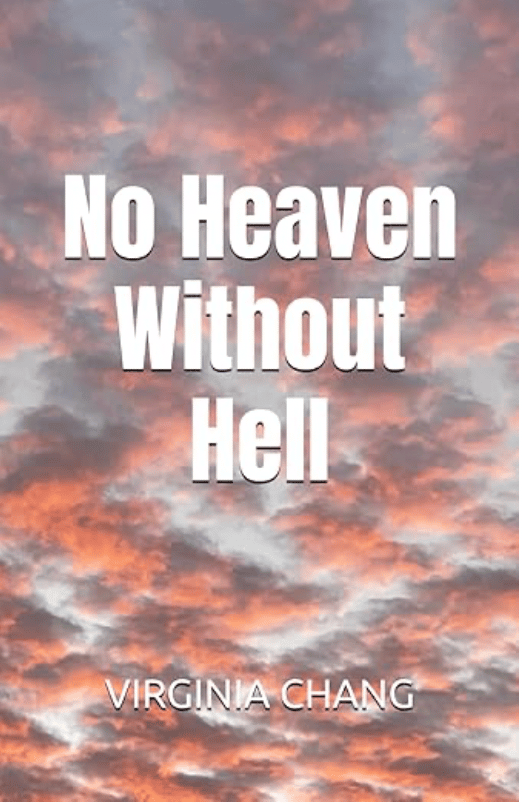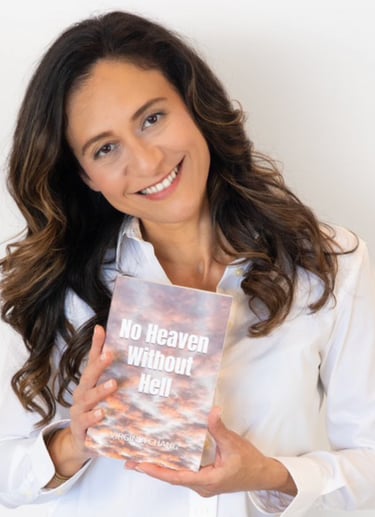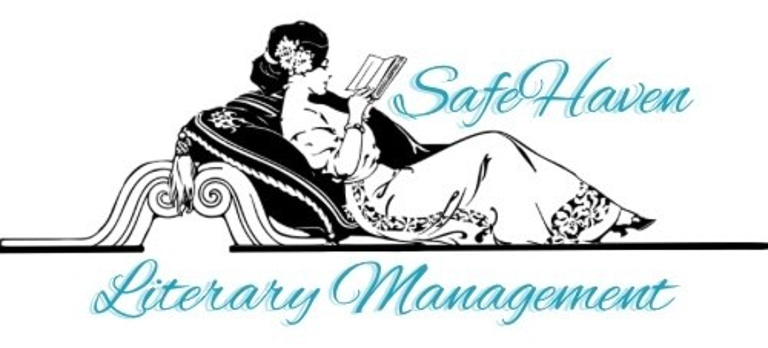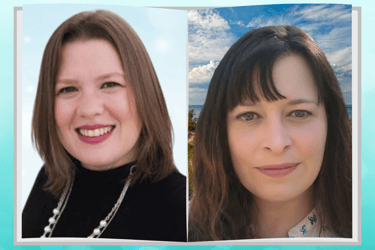What was your motivation for writing your latest book? Can you elaborate on the process behind it?
My primary motivation was to help others by sharing my personal experiences. I wanted to show that if I could navigate through difficult and negative situations, emerge stronger, and still maintain a caring, loving, and positive outlook, then others can do the same. Ultimately, my goal was to inspire people to be a source of light, rather than allowing themselves to be consumed by darkness.
This week, we have the pleasure of chatting with Virginia Chang, the talented author of No Heaven Without Hell.


In a world of mysteries and mythology, discover a world full of ups and downs, calm and chaos, love and compassion.
Where meetings with God and the devil are part of the everyday life.
Will you be able to understand and decipher the cryptic messages?
Dive into this story with an open heart and let it change you into a better you.
Unlock the profound mysteries of the Bible with this insightful exploration of the Book of Revelation. In this thought-provoking journey, you’ll delve into the eternal questions of Heaven and Hell, discovering how God’s love is woven through the final chapter of Scripture.
With deep reverence and clarity, this book unravels the apocalyptic visions and symbols found in the Book of Revelation, offering both understanding and hope for the future.
Whether you’re seeking spiritual insight, answers to life’s biggest questions, or a greater understanding of God’s plan, this book will guide you through the awe-inspiring mysteries of the Bible and reveal the powerful truths about love, judgment, and eternity.
Perfect for seekers, believers, and those curious about the end times, this book is a transformative journey into God’s eternal Word.
Could you describe your writing routine and how you maintain focus and creativity throughout the process?
I wish I had a good answer for this, unfortunately I’m very much a go with the flow type writer. I’ve spent too many days staring at a blank screen trying to force myself to write to try to get myself into a routine. I am trying to get better at it though. I’m working to try to at least write five thousand words a week, but I’m not setting a time or project. I work on whatever is coming to me, whenever it comes, I’m very lucky to have the freedom to do it this way.
As for maintaining creativity I try to keep engaged with the arts at all times. I read within my genre, watch movies and shows, play video games, all of these things keep my cogs turning. I’m one of those annoying people that likes to reimagine how movies or shows could have gone, while actively watching them.
Buy Here













